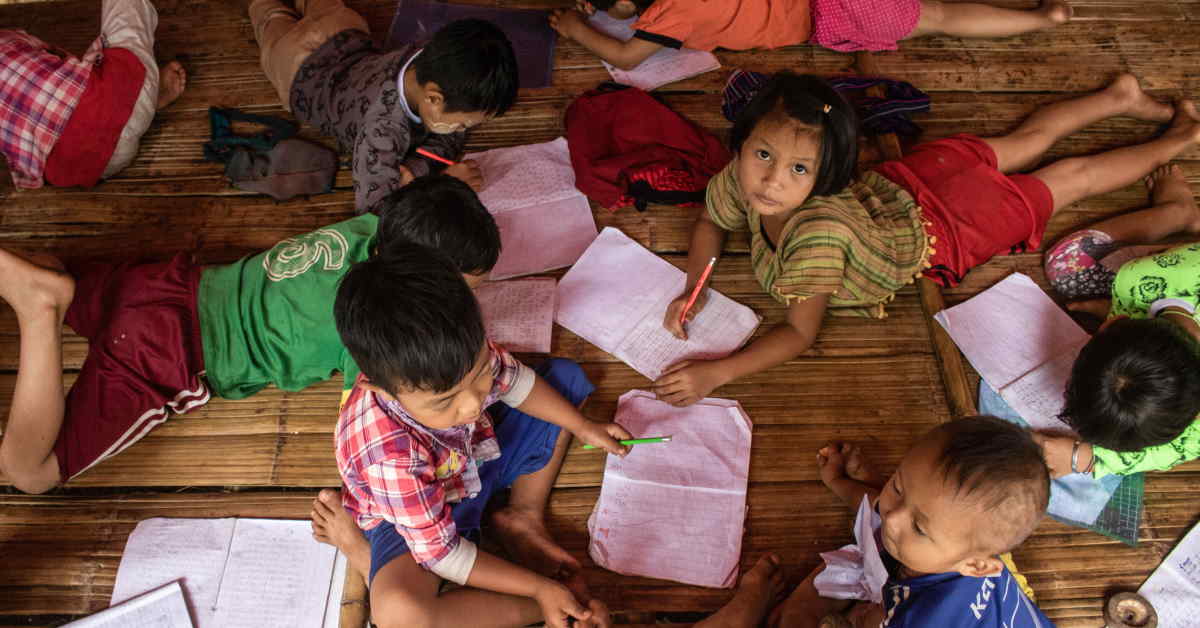The world risks creating a “lost generation” of children in Myanmar unless it takes immediate steps to protect them from the violence perpetrated by the military since it seized power in February 2021, a United Nations (UN) human rights expert has said.
“The junta’s relentless attacks on children underscore the generals’ depravity and willingness to inflict immense suffering on innocent victims in its attempt to subjugate the people of Myanmar,” Tom Andrews, UN Special Rapporteur on the situation of human rights in Myanmar, said in a statement this week.
He said children were not only being caught in the crossfire of the military’s crackdown on opponents, but were also being deliberately targeted in what he said amounted to crimes against humanity and war crimes.
Myanmar was plunged into crisis after the generals, led by Min Aung Hlaing, removed the elected government of Aung San Suu Kyi and took power for themselves. The coup led to mass protests and a popular uprising with some civilians forming rebel groups to fight against the military.
Nearly 2,000 people have been killed by the military since the coup, according to the Assistance Association for Political Prisoners, a monitoring group. More than 11,000 are in detention.
According to Andrews, the military has killed at least 142 children and arbitrarily detained more than 1,400. At least 61 children, including several under three years of age, are reportedly being held as hostages, while the UN says it has documented the torture of 142 children since the coup.
“I received information about children who were beaten, stabbed, burned with cigarettes, and subjected to mock executions, and who had their fingernails and teeth pulled out during lengthy interrogation sessions,” Andrews said.
The UN expert said the attacks on children showed the international community’s response to the coup had failed.
“States must take immediate coordinated action to address an escalating political, economic and humanitarian crisis that is putting Myanmar’s children at risk of becoming a lost generation,” he said, urging increased pressure on the coup leaders, and stronger measures to curb the military’s ability to finance atrocities.
“States must pursue stronger targeted economic sanctions and coordinated financial investigations. I urge member states to commit to a dramatic increase in humanitarian assistance and unequivocal regional support for refugees.”
Countries including the United States (US), Canada, and the United Kingdom (UK) have imposed sanctions on the coup leaders and some parts of the military’s sprawling business empire. In February, the European Union (EU) expanded its measures to include state-owned Myanma Oil and Gas Enterprise (MOGE), which is thought to be a lucrative source of revenue for the military, and civil society groups are urging the US to follow suit.
Andrews noted that the international community had committed only 10 percent of the funds required to implement the Myanmar Humanitarian Response Plan 2022 and that lifesaving programmes for children had to be shelved as a result.
The UN estimates that about 7.8 million children are out of school as a result of the continuing violence in Myanmar, while tens of thousands have missed out on routine immunisations and other essential healthcare with the collapse of the public health system.
